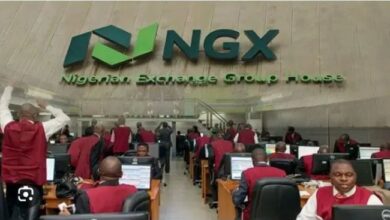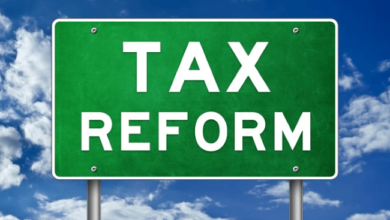Power outage: Business owners, residents groan over outages
 Some electricity consumers are groaning over the continuous power outages following an acute drop in electricity supply to households and businesses within Lagos metropolis.
Some electricity consumers are groaning over the continuous power outages following an acute drop in electricity supply to households and businesses within Lagos metropolis.
A number of the stakeholders who spoke to the News Agency of Nigeria ( NAN) in separate interviews on Tuesday in Lagos lamented that the development was having a negative impact on their socio-economic activities.
According to them, many small-scale businesses have shut down as a fallout of the eratic power failure without tangible explanation by the providers.
Prolonged power outage delays plenary at Senate
Findings by NAN correspondent revealed that power supply has dropped drastically in the Lagos as low as three-to-five hours daily in several areas.
Residents under Ikeja Electric and Eko Electricity Distribution companies, especially the business community, have continued to lament the epileptic supply, respectively.
NAN investigations also revealed that communities have been thrown into darkness for some time now, while residents of Lagos metropolis are experiencing unprecedented power outages.
Mrs Opeyemi Ajayi, Managing Director, Victory Pure Water in Ikorodu, told NAN that the persistent energy crisis in Nigeria had negatively affecting industries, causing shutdowns, hampering productivity and escalating operational expenses.
Ajayi said that her company hardly had five hours of electricity supply since February, which had continued to affect the operations and revenue of the business.
“We buy diesel between N1,150 and N1,200 per litre.
“Most small-scale businesses have started closing down due to the current outages in the country.
“We appeal to the Federal Government to save our businesses from total collapsing,” she said.
Mr Waheed Jimoh, a welder at Somolu, said that electricity supply had dropped drastically since January, especially in the Somolu area.
Jimoh said that some residents had been experiencing a total blackout three to four days a week, while some received supply less than five hours per day under the load-shedding scheme of the distribution company.
According to him, several businesses have been paralysed on account of the poor power supply, while business operators who can afford generating sets increased prices of goods and services.
“Despite the poor power supply, Ikeja Electric still brought an estimated bill of over N170,000 for February.
“For instance, over 50 per cent of small-scale business operators (Welders) in Lagos were forced to close their shops due to epileptic power supply,” he said.
Alhaji Hassan Ibrahim, Chairman of Agbede Community Development Association in the Ikorodu North area of Lagos, said that for the better part of January, February and March, most homes were in darkness.
Ibrahim said most of the households within his CDA have inaudanted him with calls on the abysmal supply of electricity.
He lamented that the worst were SME operators who depend on electricity for their day-to-day survival.
He added that supply within Ikorodu and environs had dropped to less than five hours of supply daily.
He, however, called on all relevant authorities within the power sector value chain to make reliable and steady electricity supply a priority.
Mr Adetayo Adegbemle, Executive Director/ Convener, Power Up Nigeria, said, “We need to first generate enough to go round.
“Then, we need to price electricity appropriately, we need to remove subsidy on electricity tariff and look at getting institutional financing or any other creative means for metering.
“We should stop treating electricity like national cake that must get to everyone, we need to liberalise the sector totally so we can have quick electricity coverage for the nation,” he advised.
Adegbemle said that an energy poor nation is a poor nation.
“We are not able to scale local manufacturing capacities, we are not able to process our foods, we are not able create jobs.
“Our inability to power our nation definitely has a multi sectorial effect on the economy and market growth.
“It keeps impoverishing the people,” he said.
Adegbemle said that the only way forward was to appropriately price electricity, remove subsidy, encourage some liberalism so that many parts of the country could develop in sync.
He added that the government could also come up with deliberate policies that encourage the development of production ecosystems and collaborations across value chains.
Mr Chinedu Amah, Founder, Spark Nigeria Ltd., said that Nigeria needed to take a stand to withdraw subsidies from the sector slowly.
Amah said: “We need to engage investment to increase employment, which will guarantee increased cash flow and affordability.
“Poor power supply in impacting businesses negatively as cost of alternative power supply is definitely higher. With homes, it’s worsening our collective quality of life.
“More businesses will go as power challenges and free falling of Naira continue.
“Power supply needs to be decentralised from the bottom up. We do not have a choice,” he added.
Responding, Babatunde Lasaki, General Manager, Corporate Communications, Eko Electricity Distribution Company (EKEDC), told NAN that the situation was due to shortage of gas.
“We all know the main reason being the shortage of gas has resulted to limited generation from the Gencos and thus limited load allocation to the DisCos.
“However, the key players in the industry are working with the government on ways to resolve the gas shortage and increase the grid allocation as well as the load allocation to the DisCos.
“This, in turn, will lead to increased supply to customers.
“As an organisation, we at Eko DisCo are exploring different cocktails of opportunities and partnerships with IPPs through other means such as embedded generation and renewable energy.
“This is to boost the allocation from grid and thus able to provide more improved supply to our customers,” he said.












